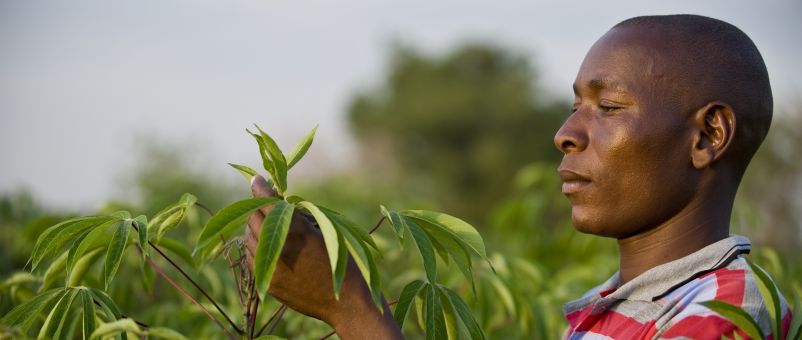- About
- Topics
- Story
- In-Depth
- Picks
- Opinion
- News
- Donate
- Signup for our newsletterOur Editors' Best Picks.Send
Read, Debate: Engage.
| November 13, 2017 | |
|---|---|
| topic: | Health and Sanitation |
| tags: | #cancer, #breast cancer, #technology, #Africa |
| located: | Sierra Leone |
| by: | Bob Koigi |
Sandra Musujusu, who is still working on her research through macromolecular science is targeting to develop biodegradable polymer material as an alternative and sustainable way of tackling triple negative breast cancer. This cancer subtype is more aggressive than all the other types of cancer with studies indicating that it is more likely to return after treatment especially in the early years after treatment. In one study that targeted over 1600 women with triple negative cancer, the results showed that the cancer was highly likely to reappear outside the breast for the first three years. Another study examining the lifespan of women with the cancer found out that more had a chance of dying within five years of diagnosis.
It is this sorry state of affairs that Sandra seeks to reverse.
“My research is actually centered on the development of bio-degradable polymers for treatment of breast cancer. “I will be focusing on triple negative breast cancer which is actually the aggressive sub-type of breast cancer that is common with women of African ancestry. “I believe there is a bright future for Africa, and as a woman, there is much more we can do if we are empowered,” she said when explaining her research to the media in Nigeria.
Sandra’s stab at tackling cancer is one of the bold and innovative ways scientists in Africa are trying to address a problem that seems to be endemic now more than ever, occasioned by changing lifestyles and lack of requisite resources to tackle it before it spreads.
“As a continent even though we have celebrated major milestones that have been made in the war on cancer, we still have a long way to go because many people still die either due to late diagnosis or have no resources to treat cancer. Our public healthcare which the majority of the population rely on for treatment doesn’t even have the basic technology to do diagnosis. That is why Sandra’s research and other scientists across Africa deserve recognition, they are burning the midnight oil to provide alternative, sustainable and affordable solutions.” said Dr. Ahmed Abdalla an oncologist in East Africa.
Breast cancer still remains the most commonly diagnosed cancer world over among women with an approximated 1.7 million new cases reported in 2012. In the US, black women with breast cancer are at the highest risk of dying than any other ethnicity according to the Susan G. Komen Foundation.
The scourge has especially taken a toll on developing countries especially Africa, with over 94,000 new cases reported in Sub Saharan Africa every year. It has now overtaken cervical cancer as the leading cause of death in a majority of the countries in the region. Developing countries, especially in Africa, are said to be spending up to $100 million to fight cancer - money they don’t have as they struggle to acquire modern technology. It is manifest in the few radiotherapy machines that usually break down and a long waiting list of patients to access these facilities. About 15 African countries have no radiotherapy machines at all. In Kenya’s national hospital, Kenyatta for example, the waiting list extends up to two years.
This, even as the disease continues to take a toll on the productive manpower key in driving the countries’ economic growth.
Industry players now say that with the expected rise in cancer cases going forward, developing nations should now tap into its educated and suave young generations who have previously proven valuable in coming up with homemade solutions to some of the most biting African problems. Sandra Musujusu while being among the frontrunners in this area is a classic case study. “Looking at the limited number of resources and expertise that the continent has to address the ever rising cases of cancer, we need to get smart and ahead of the disease. We have an educated young workforce who should now be championing low-cost local solutions to what is now a major disaster. Sandra should inspire a whole set of new discoveries,” said Dr. Abdalla.
By copying the embed code below, you agree to adhere to our republishing guidelines.
